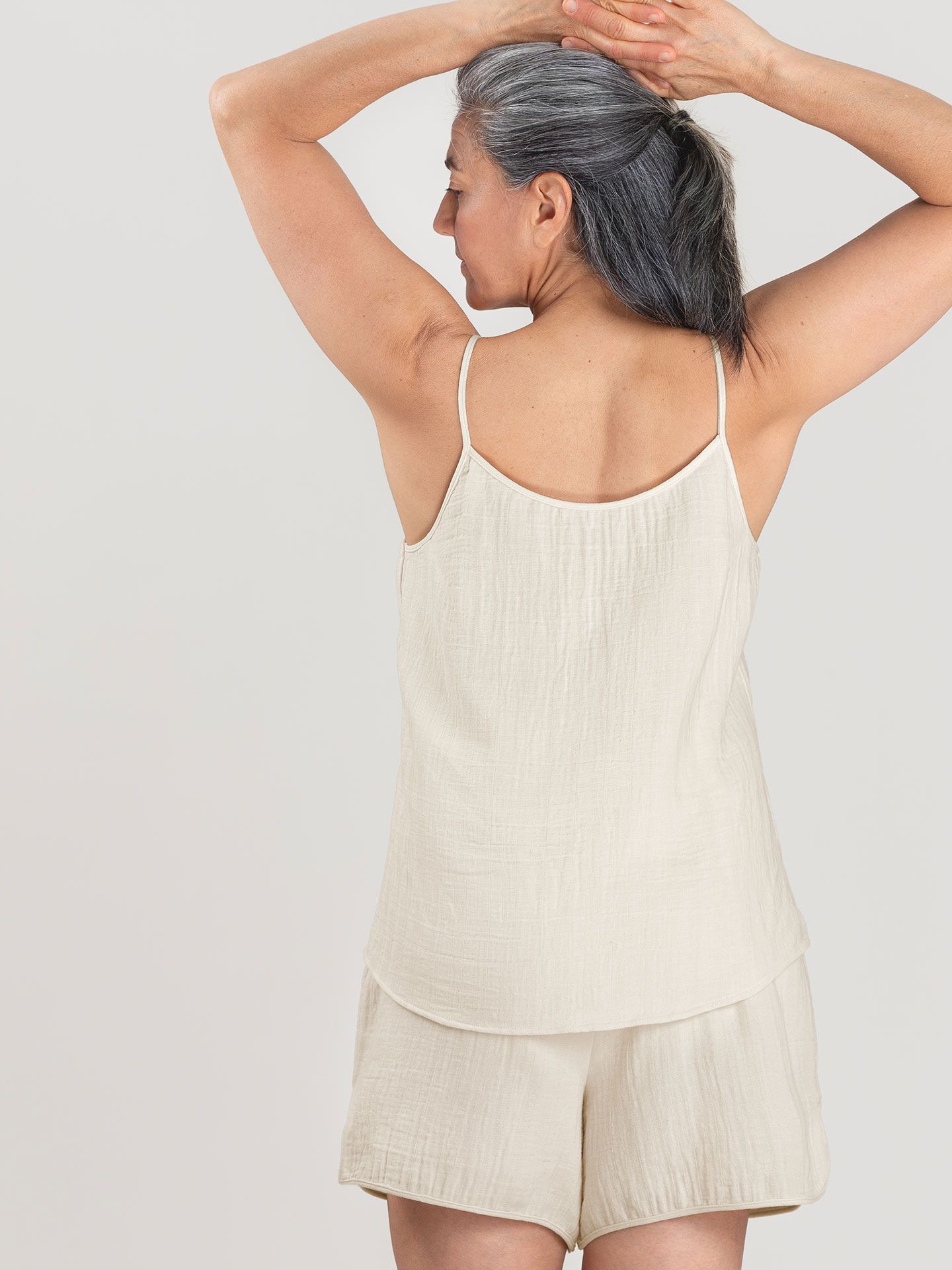ENVIRONMENTALLY FRIENDLY MATERIALS
An important part of slow fashion is the use of more sustainable materials. Organic cotton, Modal, Roica, and Q-Nova are just a few examples.
Environmentally sustainably produced materials are grown without the use of harmful pesticides or chemicals and with a focus on resource conservation. Certifications such as GOTS (Global Organic Textile Standard) and Cradle to Cradle ensure adherence to environmental criteria throughout the entire supply chain.
FAIR TRADE AND WORKING CONDITIONS
Protecting the rights of workers is absolutely necessary for a more sustainable system in the fashion industry. By focusing on the use of fair-trade materials, it ensures that the people behind the clothing are paid fairly and work under fair conditions. Transparent supply chains and certifications allow you to track whether social responsibility is taken into account when producing your clothes.
LONG-LASTING QUALITY AND TIMELESS DESIGNS
Another characteristic of slow fashion is the highest possible quality of garments. Unlike the often low-quality products from the fast fashion industry, slow fashion items are made with attention to detail and durable materials. Furthermore, slow fashion brands focus on timeless designs that are not influenced by short-lived trends. This way, you can wear your favorite pieces for many years.
REPAIR AND REUSE
Slow fashion also promotes the concept of repairing and reusing clothing. Before you throw away your clothes when they are damaged or no longer liked, you can try repairing them or redesigning them to make them more appealing. At erlich, we’ve introduced our Take-Back system to give your worn-out favorites a new life. Learn more about our Take-Back system here.







